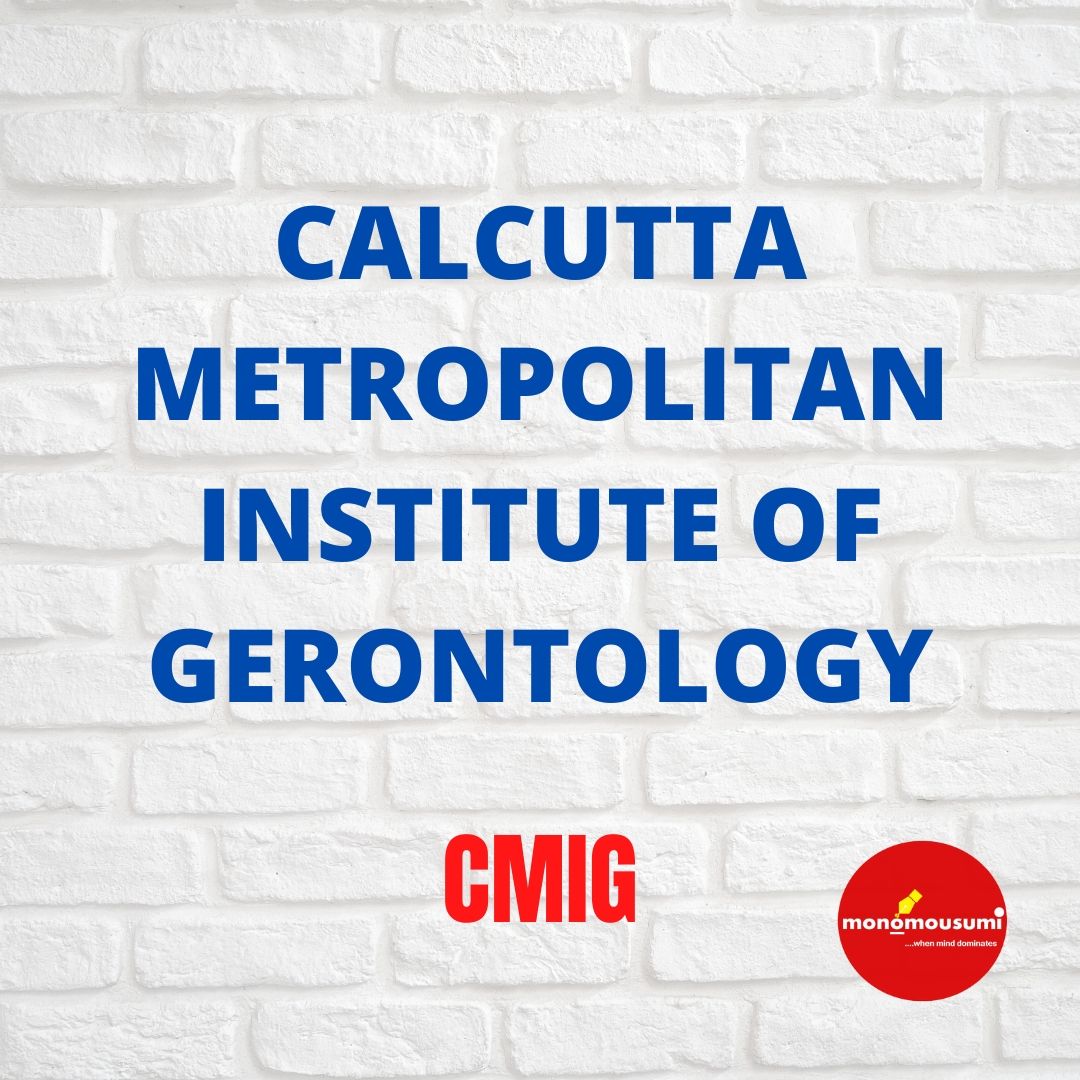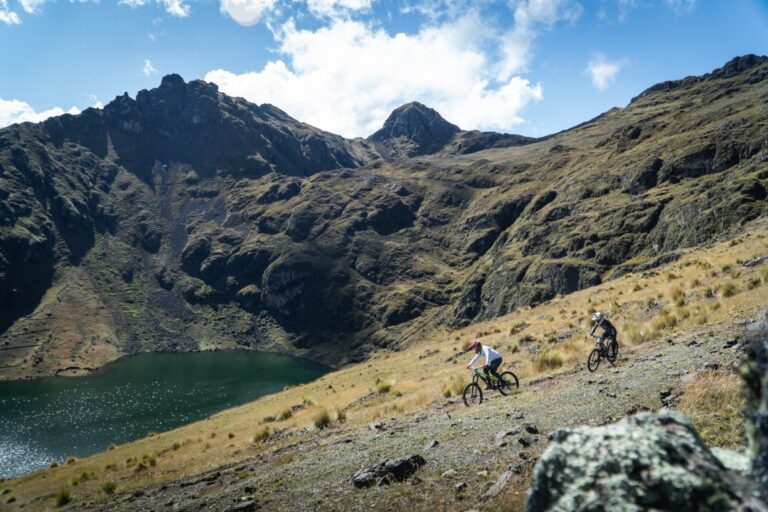
“Our strength is our commitment”
At E/1, Sopan Kutir stands a humble institute, thirty-two years old. For thirty-two years now, the Calcutta Metropolitan Institute Of Gerontology has been relentlessly working to alleviate the plight of a section of society that remains the most neglected—-the elderly. They have spent their fiery youth days toiling to gift a better world to the future generations and have finally arrived in their twilight years with the hope that all will end well. Feeble on their feet, with a toothless grin and the old brag of the heart, their hopes get drowned as reality often dictates them to become victims of abuse.
In Indian society, the traditional concept of social security for elders incorporates the assistance of family members, monetarily and otherwise. The rapid disintegration of the joint family structure coupled with the rise in migration of the young in the family to distant lands in search of jobs, has reduced the elderly to a stature of social insecurity. Apart from health-related ailments, they are also in the grasp of mental health issues like acute loneliness and depression. The government has considerably failed to provide a suitable social security system for the aged in times of such socio-economic changes. Hence NGOs and other institutions are required to step into action.
The Calcutta Institute Of Gerontology was established in the year 1988 with the ambition of catalysing a positive change in the perspective of healthy ageing. The founder of the institute, Dr. Indrani Chakravarty was considerably moved by what she saw on her first visit to Japan as part of her Pd.D research on retired people. There are clubs, restaurants, and libraries in Japan that cater exclusively to the aged. There exists a well-crafted network of geriatric units alongside the Tokyo Metropolitan Institute Of Gerontology. They collectively work to design and provide recreational, nutritional, psychological, physical, and counselling services for people above sixty. She was hugely inspired by this and decided to establish such an institute closer home.
The institute was inaugurated primarily as a research institute, striving to transform the experience of ageing by influencing effective policy-making of the State through extensive research and data collection. Over the years, the institute has spread its wings into a number of newer avenues, but research has remained at the core.
GROUND ZERO – RESEARCH
CMIG is involved in research in the field of gerontology. Their approach to research is undoubtedly multidisciplinary. Some of the research projects carried out by CMIG in the past years had the following titles:
- Aged in Calcutta: A Gerontological Study
- The Aged in Slums: A Documentative Gerontological Study
- A Study Aimed at Utilizing the Potentials of the Senior Citizens for the Benefit of the society.
- Ageing & Disability: A Gerontological Study
- Dynamics of Elder Care in Urban and Rural Milieu
The institute thus pursues a diversified form of research with the principal intention of understanding the issues plaguing the lives of the aged across different socio-economic strata and demography. Recent developments in research include deciphering the supportive role of dance as a therapy to relieve mental stress for cancer patients, inventing technological devices to assist senior citizens in cases of mobility difficulties, cognitive impairments, and sleep disorders.
CMIG publishes a quarterly journal titled Ageing and Society, the Indian Journal of Gerontology. The journal comprises research papers revolving around matters affecting the aged population.
RESEARCH TO REALIZATION
As a research institute, CMIG conducts city-wide surveys to collect data concerning the elderly poor residing in Kolkata. Their studies revealed to them that there are nearly twenty-five lakh BPL elders in the city itself. About seventy-five thousand among them live in slum areas. Apart from an ongoing financial turmoil, they are mostly malnourished with an average weight of thirty-five kilograms. Most of them face several degenerative disorders like muscular atrophy and other severe ailments and receive no medical treatment for the same. Their families cannot afford any form of formal care-giving facility for the elders and awareness regarding informal care-giving techniques borders on the nil.
Their research awakened them to a reality that requires immediate action to promulgate graceful ageing. The extensive surveys brought to their realization that the aged want to be productive and remain a part of mainstream society. Hence they embarked on establishing daycare centres around the city to furnish a safe space where they can rejuvenate and receive needful counselling and care. From being just a research institute, CMIG thus upgraded itself to become an action-oriented research institute.
As a prelude to providing a dignified sense of living to the underprivileged elderly community, CMIG engaged social researchers for the identification of acutely vulnerable people over sixty. The research team took into consideration factors like seriousness of health condition, degree of awareness about physical and mental well-being, literacy level, poverty and deprivation in the family environment. The exhaustive door-to-door survey, following standard methodologies, brought to the forefront over five-hundred beneficiaries.
CMIG now runs two daycare centres, one at Beliaghata, the other at Purbalok.
THE FEELING OF WHOLESOMENESS….
The daycare centres strive to provide all beneficiaries wholesome care. There are more than fifty regular attendees at each centre.
…. of Autarchy
An ordinary day at the centre starts at noon with a short prayer. The elders then immerse themselves in making paper bags. They continue with the task until around 2 p.m. The paper bags are then sold to local shopkeepers. This initiative gives them a daily earning of Rs.5-Rs.10. The meagre amount endows upon them a sense of self-reliance. Often the loss of income in old age puts the elderly in a situation where they become financially dependent on their family members. Sometimes household expenditures get prioritized over their basic needs. Hence this income-generating program empowers them to not only satiate their own needs but also contribute to the family earnings. It often gifts them the pleasure to take home small presents for their grandchildren.
…. of Leisure
The beneficiaries receive a sumptuous afternoon meal, after which they spend time either conversing, playing board games, or watching television. On some days, they hold group discussions where they vent out about issues that directly affect them. Starting from problems within the family to physical maladies, the social workers help them to resolve their respective conflicts. Recreation is quintessential for the psychological well-being of any individual. Hence for a change of ambience, the beneficiaries are taken on various trips. They also celebrate festivals together and organise cultural events on auspicious occasions.
…. and of Health
On Thursdays and Saturdays, doctors visit the daycare centres for health check-ups of the beneficiaries. The institute provides them with the required medicines. Physiotherapists are also engaged.The centres have adopted magneto-therapy as an effective method of treatment. The beneficiaries receive dietary counselling from trained counsellors who help create a balanced diet out of inexpensive food items. Through physical activities like sports and yoga, along with psychological counselling, the elders attain improved mental health.
TO ALL CAREGIVERS
Increased fragility in old age is a result of a variety of complex medical disorders. Degeneration of body cells increases manifold as one gradually approaches the twilight years. It retards mobility and leads to cognitive impairments. Hence, elders often need assistance to complete minor chores, if not trained care for more complicated physical or mental afflictions. With both men and women of the family going out to earn a living, the elders seldom remain unassisted. This adds to the burgeoning need for trained domiciliary caregivers. The professional training courses at CMIG thus aims to replenish the dearth of trained geriatric caregivers in society.
PROFESSIONAL TRAINING COURSES
- 6-Month Certificate Course in Geriatric Care
OBJECTIVE: The objective of this course is to produce competent caregivers in the age group of 19-45 years.
SCREENING TEST: Applicants are chosen through the Common Aptitude Test (CAT) of NISD. The examination includes a written test followed by an interview with academic experts and government officials.
CURRICULUM: Apart from classroom lectures, the curriculum includes hands-on training, project work, internal assessments, and academic presentations.
JOB PROSPECTS: Geriatric counsellors, nursing jobs
- 2-Month Certificate Course in Geriatric Care for Bedside Assistance
The course is designed to train a group of front-line caregivers for the aged residing in a de-institutionalised environment. At the end of the course, the trainees have heightened knowledge regarding elderly care-giving in a professional approach that is in sync with the immediate familial ambience.
- 1-MonthCertificate Course on Basic Issues in Geriatric Care
This is mainly a refresher course for any functionary involved in geriatric care in an institutional or non-institutional setting. The course disseminates knowledge on how to manage facilities at old age homes, geriatric hospitals, rehabilitation institutes, or any elderly care centre.
- 5-Day Training Programme on Management of Dementia
This programme aims to develop specialized faculties needed to take care of demented elders and instil the know-how of the same amongst family members. Through interactions with experts in the field, trainees develop a greater understanding of the challenges they might face as caregivers and how best to live up to those challenges.
Alongside professional training programmes, CMIG conducts academic courses pertaining to various aspects of gerontology.
ACADEMIC COURSES
- 1-Year Post Graduate Course on Gerontology and Age Management
This course underlines the basics of gerontological studies and is approved by the University of Calcutta. Potential career opportunities include nursing, therapy and social work.
- M.Sc in Dementia
It is a 3-year programme conducted in collaboration with the School of Applied Social Sciences, University of Stirling, UK. It is a multi-professional course that is open to all professionals who are involved in dementia care in the field of healthcare, social work, and research.
SPREAD THE WORD
The predominant belief that sexagenarians have ceased to be active citizens runs deep in the societal fabric. It further fuels the apathetic demeanour of the State towards their well-being. Hence it is not surprising to notice that apart from a few initiatives, the expenditure on the aged populace is nearly negligible. Due to the absence of staunch advocacy, most schemes for senior citizens fail to trickle down to the bottom-most strata and have an overall limited reach.
As a non-profit organisation, CMIG has been facing a fund crunch since its very inception. That, accompanied by a low level of awareness regarding the dire condition of elderly care in the country, has convinced the institute to pursue advocacy with utmost sincerity.
- One Day Sensitization Programme on Intergenerational Bonding in School
This event reinstates the salient role of the youth in the fight to bring the elderly back to mainstream society. It is celebrated through interactive discussions and essay writing competitions in various schools.
CMIG also organises such sensitization programmes for teachers, counsellors, parents, and grandparents. Digital workshops are held to enable senior citizens to learn how to handle cell phones and other electronic gadgets. The core intention is to bridge the intergenerational gap to the utmost.
The institute has been using forums like the Varistha Nagarik Manch to generate awareness in the field of ageing, with an added focus on the implementation of government policies like Maintenance and Welfare of Parents and Senior Citizens Act, 2007 and National Policy on Older Persons,1999. They participate in state conventions to raise awareness on the rights of the elderly, hold various seminars to highlight the true meaning and importance of healthy ageing. Events are organised to mark the significance of days like International Day for Older Persons and World Alzheimer’s Month, with a spirit to augment social consciousness.
- Mobile Medicare Unit
This is an attempt to lend a helping hand to the substantial population of impoverished elders who cannot afford regular check-ups. Doctors and caregivers go to slum areas where they distribute free medicines and educate them about diseases like diabetes, blood pressure, and heart problems. This initiative further harps on the necessity of easily accessible low-cost treatment for elders.
AN IDEAL MODEL
The uniqueness of CMIG lies in the holistic approach they have towards research. They have ventured beyond academia and established a model practice that interconnects research, social work, training, and advocacy. The institute learns of newer avenues for research from the ongoing interactions with the beneficiaries present on site. The beneficiaries form an approachable target team that readily assists the institute in all research endeavours. Enhanced learning from in-depth research then empowers the institute to not only influence local policy concerning the aged but also streamline services that are most needed. The professional training courses and mobile medical units are some of those services. The institute thus learns from the practical and feeds it into academia, training, and other public services. This process is an iterative one and the first of its kind to be formulated in a research institute.
Community Development
The integrated model followed by CMIG vouches for the development of the community at large.
- Community Based Participatory Research: All research projects
- Economic Development: Humble employment programmes for senior citizens
- Capacity Building: Training in Geriatric Care
- Community Empowerment: Effective public policies for the aged with a higher degree of awareness
THE WAY FORWARD
The Calcutta Metropolitan Institute of Gerontology was started with a simple vision. The vision was to make the sunset hours of life serene and graceful. Old age is an inevitable phase that one has to venture through, today or tomorrow. As individuals of today, the onus lies on us to promote healthy ageing so that those who stand at the cessation of life do not feel alienated. Let us join hands with CMIG and do our part as proactive citizens.
Be a Well-Wisher, DONATE TODAY!
| Mode of donation | Details |
| Cheque | Drawn in favour of: “Calcutta Metropolitan Institute of Gerontology” Mailed to: E/1, Sopan Kutir, 53B, Dr. S.C. Banerjee Road, Kolkata – 700 010 |
| NEFT/RTGS/IMPS | A/C No.: 089301000009243 Bank: Indian Overseas Bank Branch: (0893) Salt Lake Block EA, Salt Lake, Kolkata-700064 IFS Code: IOBA0000893 |
CMIG requires donations for the following services:
- Meals
- Medicines
- Clothes and blankets
- Medical equipments
- Repairing shanties of elders
- Cataract operations
- Organise recreational outings for beneficiaries
All donations are exempted under 80G of IT Act. CMIG accepts foreign donations under FCRA.
SPONSOR A GRANDPARENT
Under sponsor-a-grandparent programme, one can directly pay for the needs of an underprivileged elder. A minimum of Rs.500 (US$ 10) per month is expected for the upkeep of the adopted grandparent.
BECOME A MEMBER
| Type of Membership | Fees |
| Annual Membership | Rs. 500/- |
| Life Membership | Rs. 3000/- |
The amount can be paid in cheque or cash along with a membership form at CMIG Administration Office.
MORE QUERIES:
E-mail: cmig@rediffmail.com OR Dial: +91(033) 2370 1437 or +91 94321 22222


